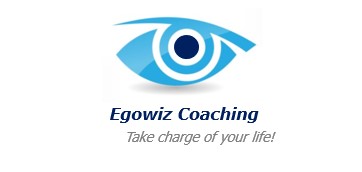Welcome to the 8th edition in this “10 Leadership Superpowers” series, on embracing mistakes! As a psychologist, I see this not just as a leadership principle, but as a fundamental aspect of human development. Mistakes are part of life, yet truly mastering the ability to accept, process and integrate them is an ongoing challenge. “Embracing Mistakes,” means shifting your mindset to see them as opportunities rather than flaws. Let’s explore how this works and why it’s crucial for psychological and leadership development.
Reframing Mistakes: The Mindset Shift
Turning Inward: Self-Compassion in Learning
From a psychological standpoint, the way we react to our own mistakes deeply influences our growth. Instead of interpreting them as proof of inadequacy, we can cognitively reframe them as learning experiences. Self-compassion plays a key role here—when you acknowledge that mistakes are an inevitable part of progress, you create a safer internal environment for exploration, risk-taking, and skill development. Neuroplasticity research confirms that our brains strengthen new pathways when we engage with mistakes curiously rather than with self-criticism.
Connecting Outward: Encouraging Others to Fail Forward
Psychological safety is one of the strongest predictors of high-performing teams. Leaders set the tone for how mistakes are perceived within their organizations. When leaders normalize mistakes as essential to learning, it reduces fear-based decision-making and invites creativity. Imagine a workplace where employees don’t suppress errors out of fear but share and analyse them collectively. This is how resilience is built—not by avoiding failure, but by learning how to integrate it constructively.
Embracing the Whole: The Bigger Picture of Resilience
From a resilience perspective, setbacks aren’t threats—they’re part of the process of adapting and growing. Every breakthrough innovation is built on a foundation of trial and error. A growth mindset sees setbacks as steps toward progress, not obstacles. This cognitive shift allows individuals and teams to persist, iterate, and refine strategies rather than throw in the towel.
Mistakes as an Opening
In conclusion, mistakes are not roadblocks; they’re openings for growth. The human brain is wired for learning through feedback, and mistakes provide some of the most valuable feedback available! When we resist or suppress them, we miss the opportunity to grow our understanding. However, when we acknowledge, analyse, and apply the lessons they offer, we develop greater cognitive flexibility and emotional intelligence—both essential traits in leadership and personal development.
How & When to Apply
- Always: Just like active listening, embracing mistakes requires being fully present. The more attuned you are to recognizing and reflecting on errors, the greater your capacity to grow from them.
- Decision-Making: Reflective thinking—analysing past missteps—enhances future decision-making skills.
- Innovation & Creativity: Many of the world’s greatest discoveries—from penicillin to Post-it notes—came from “mistakes.” The ability to embrace unexpected outcomes often leads to innovation.
- Team Culture: When mistakes are framed as learning opportunities rather than failures, employees feel psychologically safe. This creates trust, creativity, and long-term productivity.
Embrace the Messiness
Embracing mistakes is not just a leadership tactic—it’s a critical psychological skill that turns setbacks into stepping stones for long-term development. It requires a shift in perspective, emotional intelligence, and the ability to regulate one’s response to failure. Leaders who model this mindset create organisations that are more resilient, adaptable, and capable of continuous growth.
So, make it a practice: embrace mistakes—in yourself, in others, and in your journey. The more we master this skill, the stronger and more capable we become.

